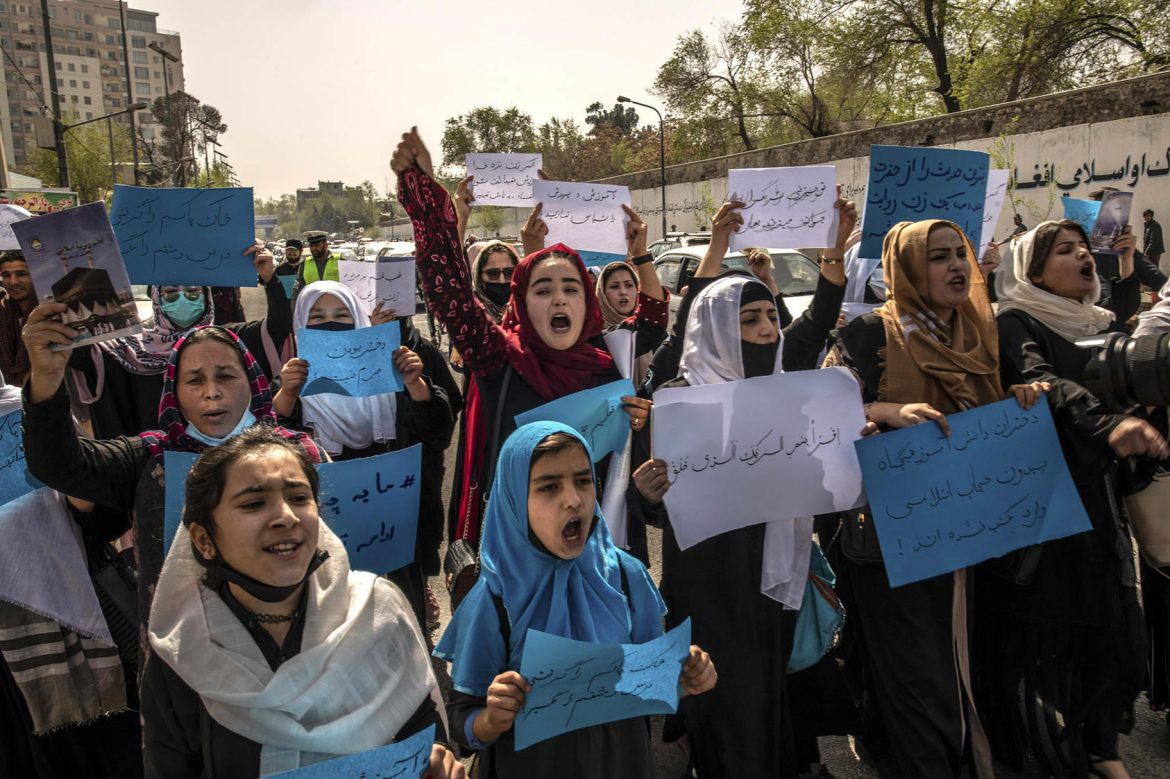According to an official report presented to the UN General Assembly by Richard Bennett – the UN Special Rapporteur on the situation of human rights in Afghanistan – a prominent UN expert accused the Taliban of having “turned the judicial system into a tool for suppressing women and girls,” in violations that rise to the level of “crimes against humanity.
As reported by the Middle East News Agency, Richard Bennett revealed in his report that after seizing power in 2021, the Taliban suspended the 2004 constitution and laws protecting the rights of women and girls. This included nullifying a landmark law that had criminalized 22 forms of violence against women, including rape, child marriage, and forced marriage. They also dismissed all judges, including 270 female judges, replacing them with unqualified men who issue rulings based on the extremist edicts (fatwas) of the Taliban group.
He added that the Taliban established complete control over law enforcement agencies and investigative bodies, and carried out a systematic purge of Afghans who had worked for the previous government.
The report, which focused primarily on access to justice and the protection of women and girls, was compiled based on individual and group interviews with over 110 Afghans inside and outside the country. All interviews were conducted remotely, as the Taliban refused to grant Bennett a visa to enter Afghanistan.
Since the Taliban came to power, numerous international reports have been published about their suppression of women and girls, and these policies have faced widespread global condemnation.
The Taliban have banned education for women and girls beyond the sixth grade and declared work for women in most sectors forbidden. They have also banned women from entering public places like parks, gyms, and beauty salons. The Taliban have enacted new laws stipulating that women cannot leave home without a hijab and prohibiting their voices from being heard in public spaces. Due to these restrictions, the Taliban remain isolated by the West, with only Russia recognizing them.
Bennett stated that the Taliban did not respond to the previous version of his report and provided no information about their efforts to ensure justice and protect women and girls.
The Taliban claim they are implementing Sharia law, but Bennett pointed out that Muslim religious scholars and other observers have confirmed that the Taliban’s interpretation of Sharia has no precedent in other Muslim-majority countries and does not align with Islamic teachings. They emphasized that upholding women’s legal rights is a fundamental part of Islam.
However, Bennett said the reality reflects an almost complete absence of women’s rights, explaining: “Today, there are no female judges, prosecutors, or officially recognized female lawyers. This situation leaves women and girls without any safe channel to report violations or seek justice.”
He noted that this situation, coupled with the absence of women in police forces and other government institutions, has led to a sharp decline in reporting violence and discrimination against women and girls.
Bennett also explained that girls’ access to justice faces an additional setback, as fundamental legal institutions protecting children’s rights – such as juvenile courts and rehabilitation centers – have been dismantled.
He emphasized that the Taliban’s requirement for a woman to be accompanied by a close male relative (mahram) to file a complaint or attend judicial hearings creates an additional barrier, disproportionately affecting widowed women, female heads of households, homeless women, and women with disabilities.
Bennett said: “Women who approach the Taliban’s judicial system – whether as victims seeking justice, in family cases, for obtaining official documents, or as defendants – face a hostile environment.”
He added that courts often dismiss women’s complaints and are particularly reluctant to accept cases involving divorce, child custody, or gender-based violence.
Faced with these obstacles, Bennett noted that women are increasingly turning to traditional and informal justice mechanisms, such as “jirgas” and “shuras” – community assemblies of elders – or mediation by religious scholars, community elders, or family members. However, all these institutions are controlled by men, raising serious concerns about the rights of women and girls.
He indicated that international bodies represent the greatest hope for achieving justice, recalling that the International Criminal Court (ICC) had, on January 23, requested arrest warrants for two senior Taliban leaders on charges of crimes against humanity for “persecution and discrimination on the basis of gender.”
Bennett also called on all countries to support efforts to refer Afghanistan to the International Court of Justice (ICJ), the UN’s highest judicial body, for violating the Convention on the Elimination of All Forms of Discrimination Against Women (CEDAW).
UN


